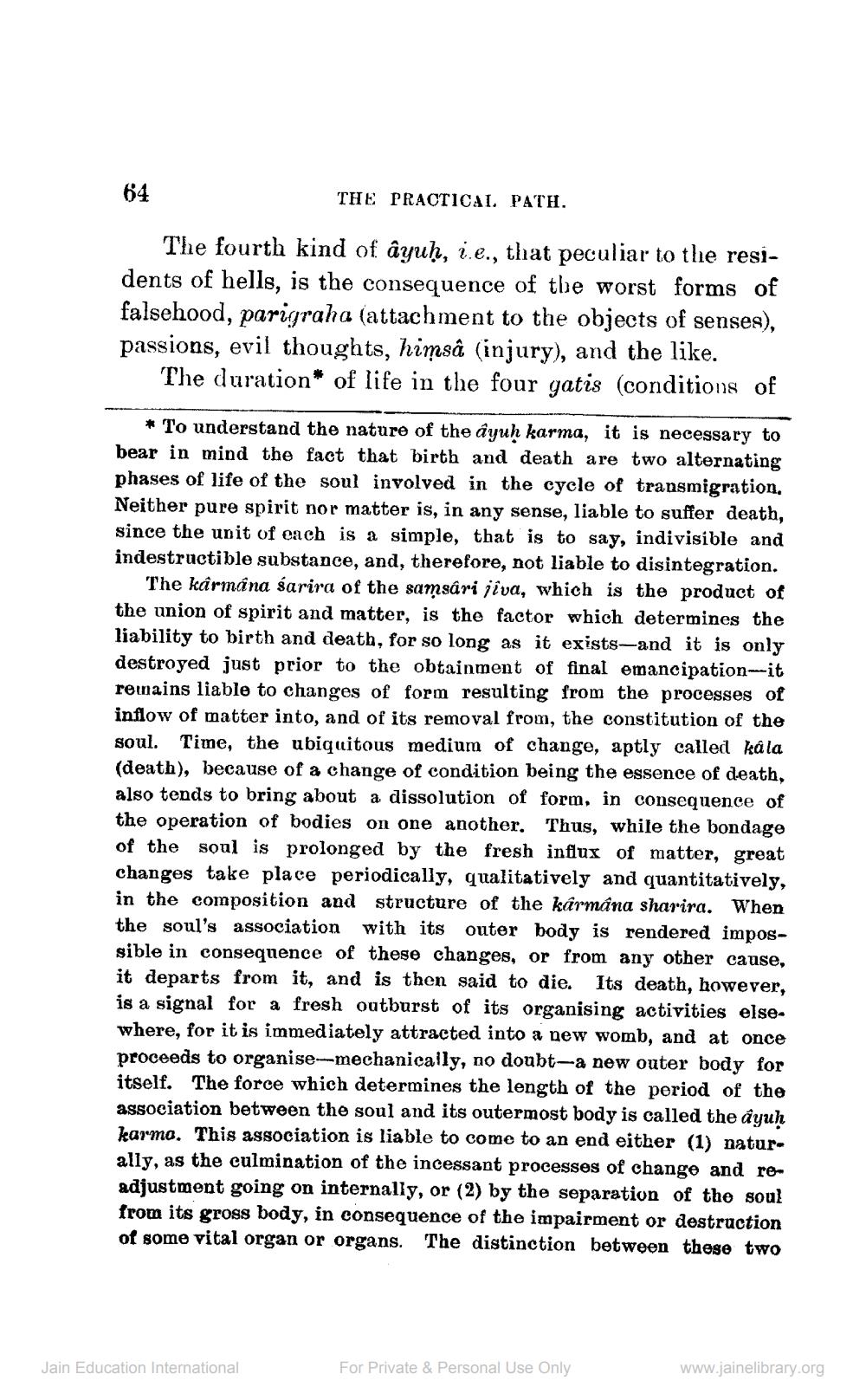________________
64
THE PRACTICAL PATH.
The fourth kind of ayuḥ, i.e., that peculiar to the residents of hells, is the consequence of the worst forms of falsehood, parigraha (attachment to the objects of senses), passions, evil thoughts, himsa (injury), and the like.
The duration" of life in the four gatis (conditions of
* To understand the nature of the âyuh karma, it is necessary to bear in mind the fact that birth and death are two alternating phases of life of the soul involved in the cycle of transmigration, Neither pure spirit nor matter is, in any sense, liable to suffer death, since the unit of each is a simple, that is to say, indivisible and indestructible substance, and, therefore, not liable to disintegration.
The kármána sarira of the samsari jiva, which is the product of the union of spirit and matter, is the factor which determines the liability to birth and death, for so long as it exists-and it is only destroyed just prior to the obtainment of final emancipation-it remains liable to changes of form resulting from the processes of inflow of matter into, and of its removal from, the constitution of the soul. Time, the ubiquitous medium of change, aptly called kala (death), because of a change of condition being the essence of death, also tends to bring about a dissolution of form, in consequence of the operation of bodies on one another. Thus, while the bondage of the soul is prolonged by the fresh influx of matter, great changes take place periodically, qualitatively and quantitatively, in the composition and structure of the kârmána sharira. When the soul's association with its outer body is rendered impossible in consequence of these changes, or from any other cause, it departs from it, and is then said to die. Its death, however, is a signal for a fresh outburst of its organising activities else. where, for it is immediately attracted into a new womb, and at once proceeds to organise--mechanically, no doubt-a new outer body for itself. The force which determines the length of the period of the association between the soul and its outermost body is called the kyuh karmo. This association is liable to come to an end either (1) naturally, as the culmination of the incessant processes of change and readjustment going on internally, or (2) by the separation of the soul from its gross body, in consequence of the impairment or destruction of some vital organ or organs. The distinction between these two
For Private & Personal Use Only
Jain Education International
www.jainelibrary.org




